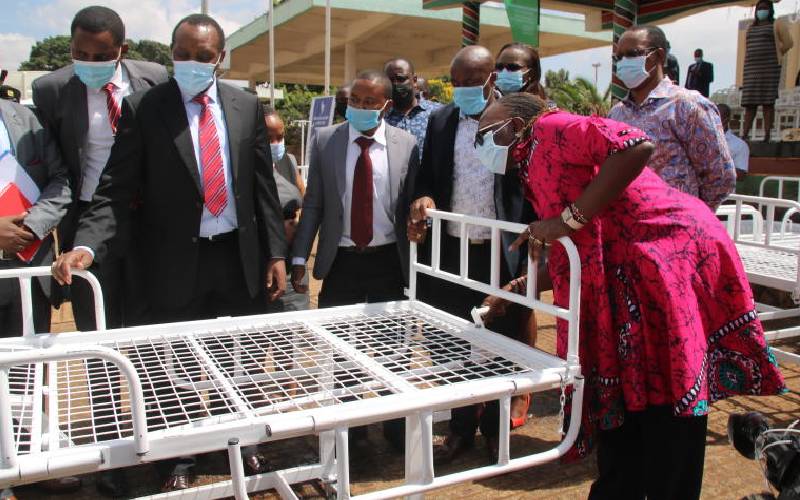×
The Standard e-Paper
Smart Minds Choose Us

Cabinet Secretary, Ministry of Trade Betty Maina with Interior Principal Secretary Dr Karanja Kibicho inspect hospital beds manufactured and procured locally. [David Gichuru, Standard]
The 32nd Africa Industrialisation Day was on November 20, 2021. No doubt, industrialisation is an important element in promoting sustainable socio-economic development across African countries. I strongly believe that the key to fostering this development is the structural role that communication plays.